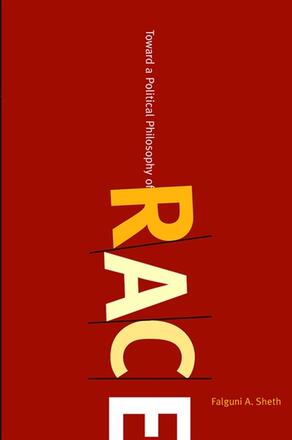
Toward a Political Philosophy of Race
Alternative formats available from:
Examines how liberal society enables racism and other forms of discrimination.
Description
Timely, controversial, and incisive, Toward a Political Philosophy of Race looks uncompromisingly at how a liberal society enables racism and other forms of discrimination. Drawing on the examples of the internment of U.S. citizens and residents of Japanese descent, of Muslim men and women in the contemporary United States, and of Asian Indians at the turn of the twentieth century, Falguni A. Sheth argues that racial discrimination and divisions are not accidents in the history of liberal societies. Race, she contends, is a process embedded in a range of legal technologies that produce racialized populations who are divided against other groups. Moving past discussions of racial and social justice as abstract concepts, she reveals the playing out of race, racialization of groups, and legal frameworks within concrete historical frameworks.
Falguni A. Sheth is Associate Professor of Philosophy and Political Theory at Hampshire College and the coeditor (with David Colander and Robert E. Prasch) of Race, Liberalism, and Economics.
Reviews
"Falguni Sheth's Toward a Political Philosophy of Race is … not only ambitious and impressive, but illustrates the sort of intellectual courage that could benefit philosophy as a discipline … [it] offers us a way of understanding race that takes us beyond liberal political theory, race theory, and even Foucauldian discourse about the nature and workings of power in the political sphere." — Social Theory and Practice
"The black experience has long been taken as paradigmatic for theorists of race across disciplines in the United States, and certainly in philosophy, where blacks constitute the largest racial minority. Thus Falguni Sheth's exploration of how this dominant paradigm may blind us to the multiple ways in which populations can be, and have been, racialized is a very valuable contribution. This is the first philosophy text on race to focus in detail on Arabs and Asians, and it is also one of the first to draw on continental theorists to examine the issue of race and political power." — Charles W. Mills, author of The Racial Contract